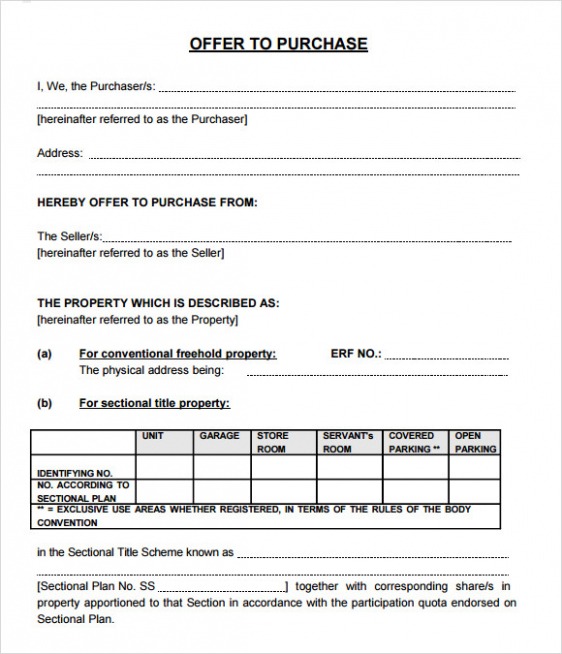Real Estate Offer Sheet Template Taxpayers experiencing tax obligation financial debt problems seldom compare the internal revenue service offer in concession with the Phase 13 insolvency. Frequently, the Chapter 13 will certainly give a much more specific remedy for the taxpayer to settle tax financial debt. This article analyzes the family member advantages of both the deal in concession and also Phase 13.

An offer in compromise might be one of the most advertised tax solution. You can not listen to radio or view TV without being pestered by advertisements to resolve your tax obligation financial debt. Typically the advertisements declare that the IRS has actually introduced that compassion in the collection of the tax obligation debt exists for a minimal time. The depressing truth is that the compassion news by the IRS was usually for other problem area, such as tax obligation sanctuaries. The internal revenue service turns down approximately 85 percent of all deals in compromise filed because of uncertainty as to collectibility. Deals in concession are typically submitted since the taxpayer thinks the tax debt can not be paid, Uncertainty as to Collectibility is one of the most typical sort of deal in concession. Other sorts of offers in compromise are outside the scope of this short article.
The benefit of the deal in compromise is that the tax obligation liabilities, including the associated fines and also rate of interest, are reduced to the quantity the internal revenue service and also the taxpayer concur can be paid. Both events must agree to the terms of the offer in compromise. The deal in concession is a contract in between the IRS as well as the taxpayer. The regards to the contract can be enforced versus the taxpayer in addition to the internal revenue service.

Acceptance of the offer in concession takes place when the IRS thinks that the offer goes to least as long as could be gathered by the internal revenue service over the 10 year life of the law of limitations. The internal revenue service will decline an deal that is for a lower amount than it can otherwise accumulate.
The IRS makes use of a uniform set of monetary requirements that are not flexible in both the analysis of the quantity paid monthly in an installation arrangement as well as in an deal in concession. These criteria limit the expenditures for living that the taxpayer can declare are necessary for living. The requirements include food, real estate and also utilities, transport, and also out of pocket health and wellness expenditure. The standards may create extreme problems for a taxpayer with a moderately higher standard of living. Overhead are not impacted by the standards.
The evaluation of the minimum offer in compromise that will make the deal processable is the equity in the taxpayer’s possessions plus the amount that could be paid in an installation contract over a given amount of time. The duration of the future regular monthly settlements taken into consideration by the IRS relies on how the offer will certainly be paid by the taxpayer. The IRS wants 48 months of month-to-month payment if the taxpayer uses a round figure. The internal revenue service wants 60 months of monthly settlement if the offer is to be paid in a short term contract of two years or much less. Nonetheless, the IRS will consider accurate problems such as retirement as well as wellness of the taxpayer in shortening the duration of the multiplier.


